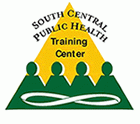
The Gulf Oil Spill: The Public Health Impact
Course Description:
It’s been one year since the explosion of the Deepwater Horizon and the consequent Gulf Oil Spill. The oil spill itself was an acute event but the long term follow up will be with public health professionals for many years to come. This course will discuss the post-oil spill issues related to public health. The discussion will include issues associated with recovery, various exposure pathways, response efforts in retrospect, and the public health response in the coming years.
Target Audience
Academic Faculty/Staff, Federal Government Employees, State Government Employees, Local Government Employees, Non-Government Employees and Students
Learning Objectives
- Describe the major post-oil spill issues
- Explain factors associated with recovery following the spill
- Describe the natural phenomena that facilitate for recovery
- Discuss factors related to exposure of VOCs
- Describe the seafood monitoring program to insure the Gulf seafood safety
- Discuss oil impact on beaches and health issues
- Describe issues of stress and mental health effects
- Discuss risk perception, influence of news media on beliefs, and the importance of clear and consistent messaging
Instructor:

LuAnn, White, PhD, DABT
Toxicologist
Director, Tulane Center for Applied Environmental Public Health
Tulane School of Public Health and Tropical Medicine
New Orleans, LA
Available Credit
- 3.00 Participation/CETulane Professional and Continuing Education (PaCE) awards 3.00 hour(s) of credit for completing The Gulf Oil Spill: The Public Health Impact
Price
Required Hardware/software
System Settings
This course is designed to work most effectively if your computer and internet connection meet certain minimal requirements. This course can be accessed using a Windows 10 PC or a Mac with High Sierra1, Mojave, or Catalina. Pop-up blockers should be disabled when viewing the course. Internet Explorer 11 (for Windows 10), or the current version of Google Chrome, Mozilla Firefox, or Apple Safari (for Windows 10 and or Mac) is required. Many of our courses require Java and JavaScript enabled.
Links to External Websites
Links to websites outside this course will open in a new window or tab. Some browsers may minimize the course window. If this occurs, maximize the course window to return to the course.
Adobe Acrobat Reader (for desktops and laptops)
Adobe Acrobat Reader is required to access some documents in this course. If you need to download a free copy of Acrobat Reader, click here.
Internet Connection Speed
A minimum download speed of 1.5 Mbps is recommended for an optimal experience, which is commonly the speed associated with a basic DSL or a cellular/satellite connection. A faster connection, such as cable or fiber service, with further enhance your online experience. A Wi-Fi connection is generally acceptable, but it is dependent upon one of the two services mentioned above. You can check your internet connection speed at http://www.speedtest.net/.

 Facebook
Facebook X
X LinkedIn
LinkedIn Forward
Forward